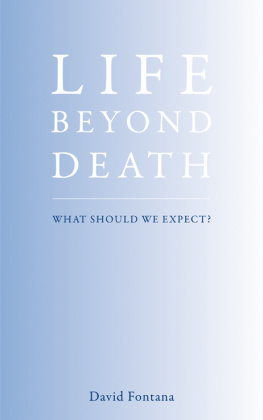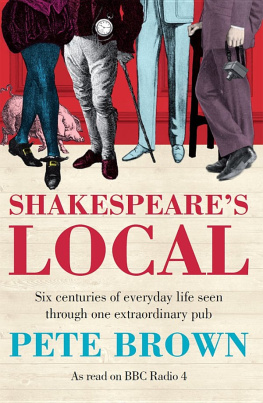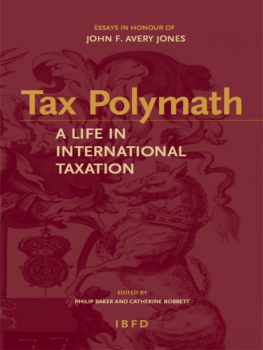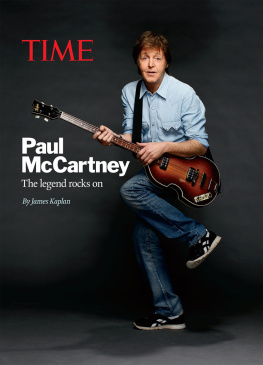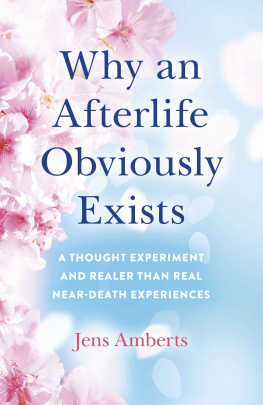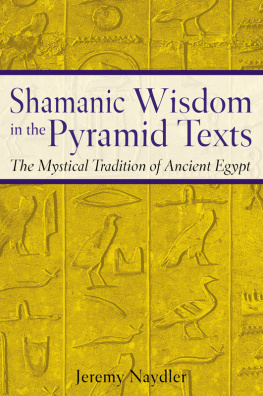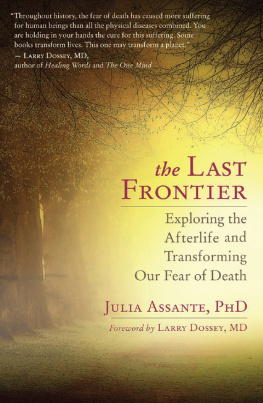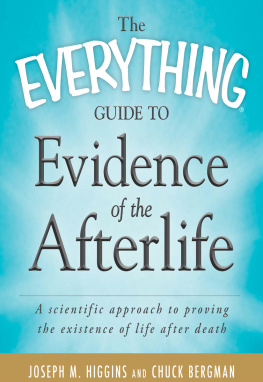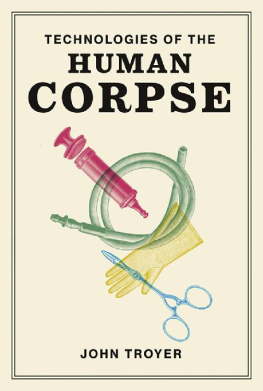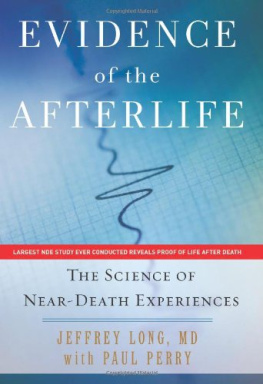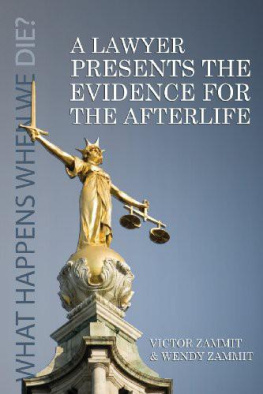This ground-breaking book ventures into new territory by critically reviewing and synthesising insights to the nature of the afterlife from many sources. Going beyond the assertion of the survival of consciousness, David Fontana boldly speculates about our ultimate journey and destination, coaxing readers beyond their limited conceptions. A must-read for those seriously interested in the meaning and purpose of life.
D AVID L ORIMER
Programme Director of the Scientific and Medical Network
This is a most valuable book, assembling as it does concepts of the nature of the afterlife, made more so by the fact that it is written by a psychologist and psychical researcher of great practical experience and perception. It should be read by many who, in this world of increasing troubles and secular pessimism, seek enlightenment, comfort and hope.
A RCHIE E. R OY
Emeritus Professor, Glasgow University, Past President of the Society for Psychical Research, Founding President of the Scottish Society for Psychical Research, and Myers Memorial Medallist
A Selection of Books by David Fontana
Is There an Afterlife?
Psychology, Religion and Spirituality
Creative Meditation and Visualization
The New Secret Language of Dreams
The Meditators Handbook
The Secret Language of Symbols
Learn to Meditate
D AVID F ONTANA is a Professor of Psychology, Past President of the Society for Psychical Research, and a Fellow of the British Psychological Society. He has been investigating the evidence for survival of death for more than 40 years, and has written and lectured widely on the subject in Britain and abroad. The author of over 40 books that have been translated into 26 languages, he chairs the Survival Research Committee of the Society for Psychical Research. Among his recent books are Is There an Afterlife?, Psychology Religion and Spirituality, and The New Secret Language of Dreams. He considers that the question of survival of death and of the nature of survival is crucial to our understanding of who we are and why we are here.
WHAT SHOULD WE EXPECT?
David Fontana

CONTENTS
For Professor Archie Roy and Patricia Robertson of the Scottish Society for Psychical Research, outstanding researchers into survival of death, and wise and generous friends.
Chapter One
THE MYSTERY OF THE AFTERLIFE
Curiosity and belief
I have always been fascinated by the deeper mysteries of life. Even as a very young boy I remember pondering about the next world. At church there was talk of heaven for those who lived a good life, and a darker place for the wicked, but beyond this broad division the details were few and far between. When I was a little older and started seeking to fill some of the gaps, adults gave me the distinct impression that everything should be left to faith. For me this didnt remove the mystery. What would the next life actually be like? What would we do with our time? Would we meet old friends and family again? Where would we live? Would there be new things to learn? Whatever adults thought, it seemed to me that these were legitimate questions. After all, we were told at school that questions were the sign of an enquiring mind.
As the years of childhood passed, I was surprised to find that curiosity about the next world was strangely lacking amongst most people, many of whom even seemed to have no belief in its existence. This lack of curiosity on the one hand, and of belief on the other, puzzled me. Werent people intuitively aware of some quality in themselves, call it a soul, that was not part of the physical world? It seemed clear to me that existence must be much more than the passing moments of our time-haunted lives on earth which brought me back time and time again to the question of an afterlife and of a soul that lived on after death. The more I thought about the soul the more I thought about the mind, which seemed to me central to the soul because like the soul it seemed non-physical, full of non-physical things like consciousness, thoughts and memories. If the soul lived on, then presumably so did the mind, and if the mind lived on this meant we carried our consciousness, our thoughts and our memories and everything else that made up the mind, with us to the next world. The more I pondered these things, the more I came up against the fact that life was a very mysterious business. What a miracle it was that we should exist at all, that we should actually be alive! And what anyway was this strange thing called life? Life, soul and mind all seemed non-physical and inextricably linked with each other. So where did they go after leaving the physical body? Which brought me back time and again to my original question, what would the afterlife be like?
My interest in such things was one of the reasons why, in due course, I became a psychologist, since I assumed that psychology was about the mind and just possibly also had something to say about the soul (since the term psychology in fact derives from pukhe, the Greek word for soul). I soon realized my mistake. Psychology has taught me a great deal about the brain, and about human behaviour, emotions, personality and much more besides. For 40 years I have been in love with the subject and my love is as strong as ever. But as with all branches of science its approach is firmly based in the physical world, and as such it can only take us so far. Science and the scientific method pause before non-physical realities such as mind and the soul. Science studies the brain, which is a physical organ, but the assumption that the mind is no more than a function of the brain and therefore also physical is just that, an assumption. Certainly when the mind is active there are electrical changes in the brain, but electrical changes are not the mind. Similarly there are chemical changes, but chemical changes are not the mind. Attempts to dismiss the mind as nothing more than a function of the brain are in fact based upon the presupposition that mind is a function of the brain, and presuppositions are not evidence. Mind and brain certainly interact, just as a television signal interacts with the electrical circuitry in a television set, but this does not mean the brain causes the mind or that the mind dies when the brain dies, any more than the electrical circuitry in the television set causes the signal or that when the television set is destroyed so is the signal.
And if the mind resists attempts to treat it as a physical organ how much more does the soul. So, to the sceptic who insists that thanks to science we know there is no such thing as a soul or an afterlife I would reply that we know no such thing. This point will be touched on several times in the book but let us be clear from the outset that since science deals with the world of physical matter it has nothing to say as yet on what comes afterwards. Certainly there are interesting developments in science (particularly in quantum physics) that suggest that not only is matter a form of energy, but that matter and mind may be part of a continuum that links the physical world with the non-physical dimension of consciousness, even that mind and matter may both be expression of the one underlying reality (see Goswami et al 1993 and Goswami 2002 for excellent introductions to this field). But far from suggesting that mind is merely a by-product of matter, these developments seem to point in the opposite direction, namely that matter may be a product of mind. And far from serving to weaken the case for survival of physical death they can actually be interpreted as strengthening it.
Next page
